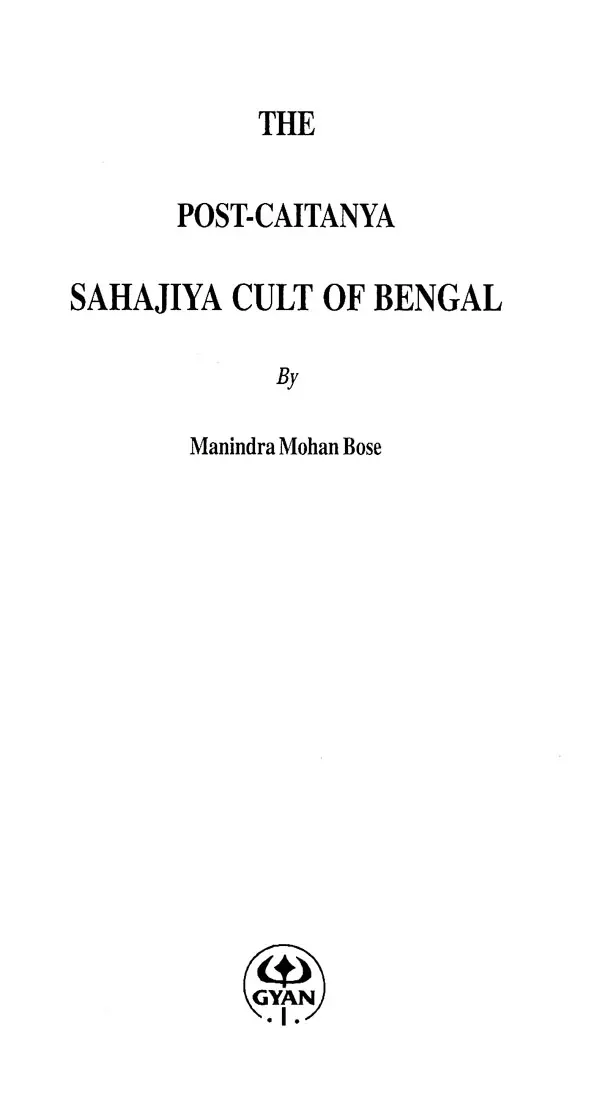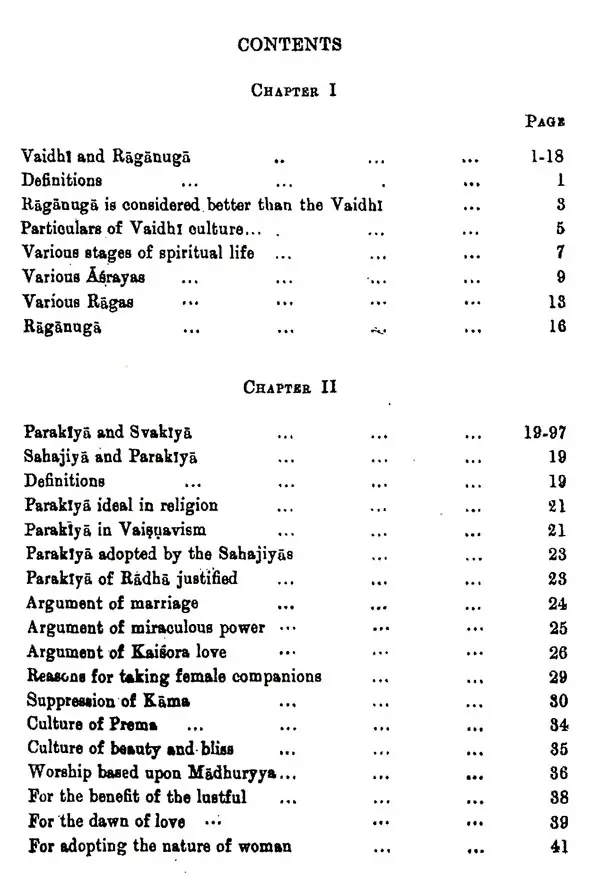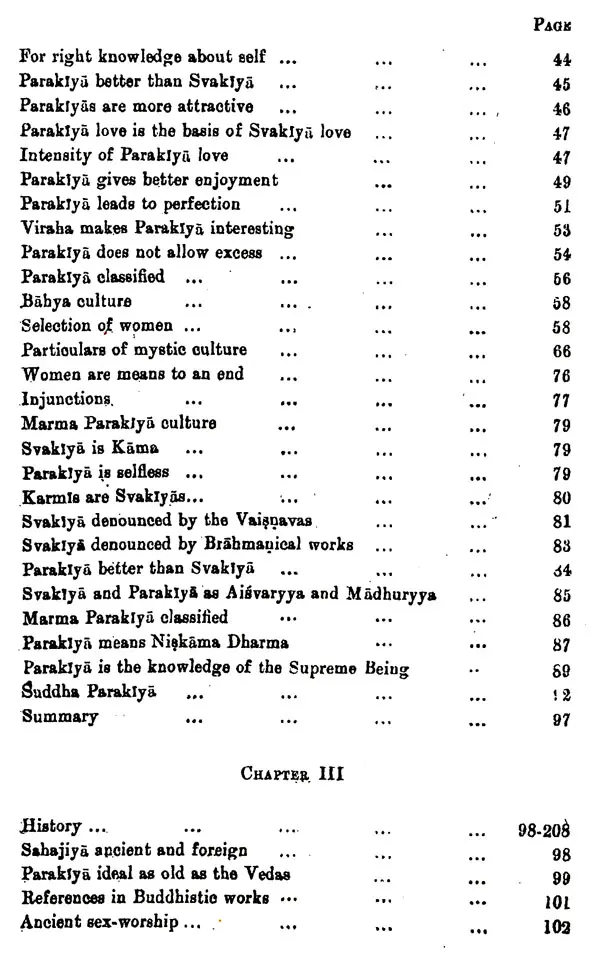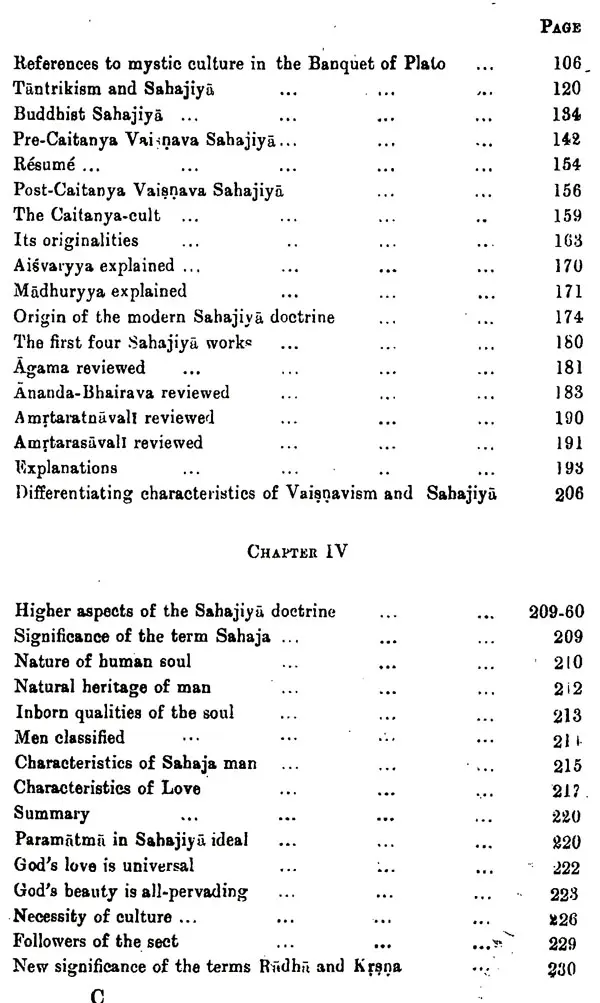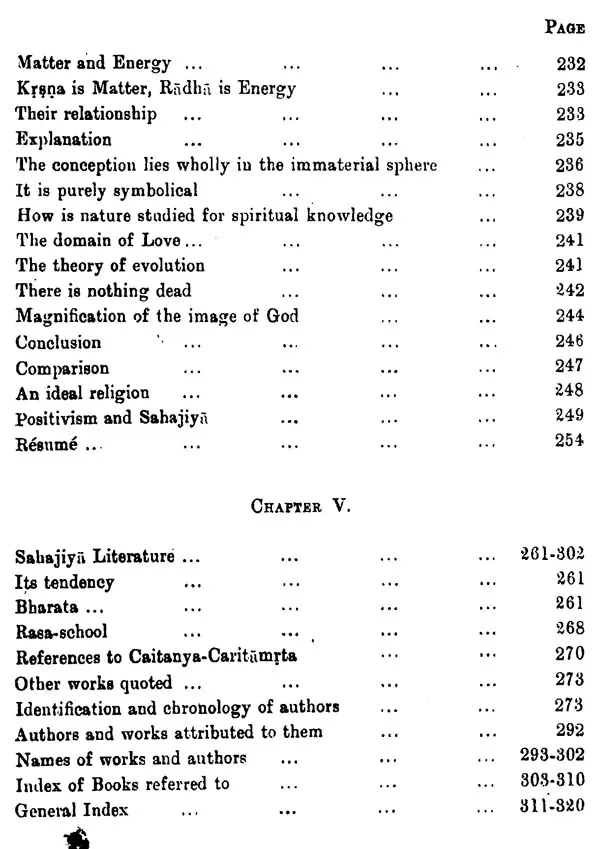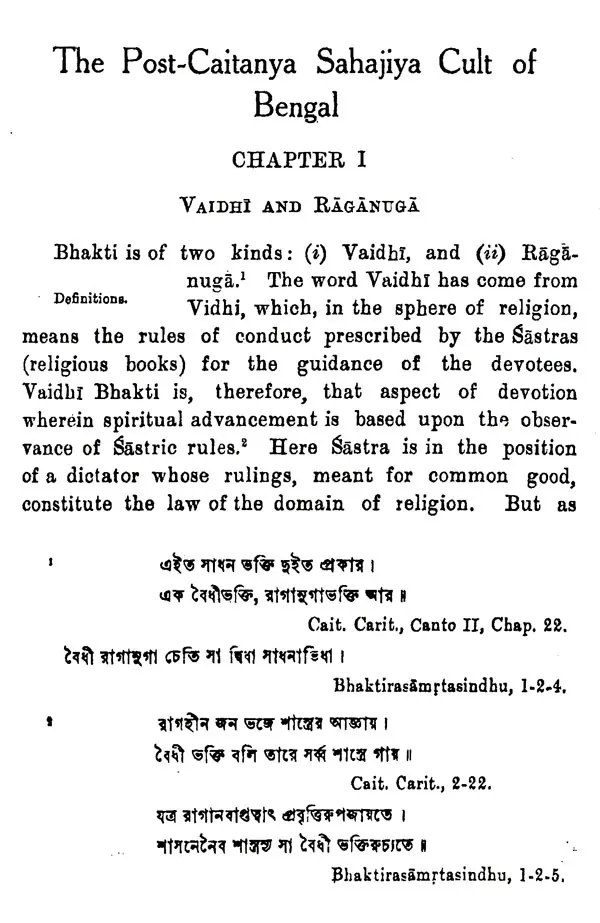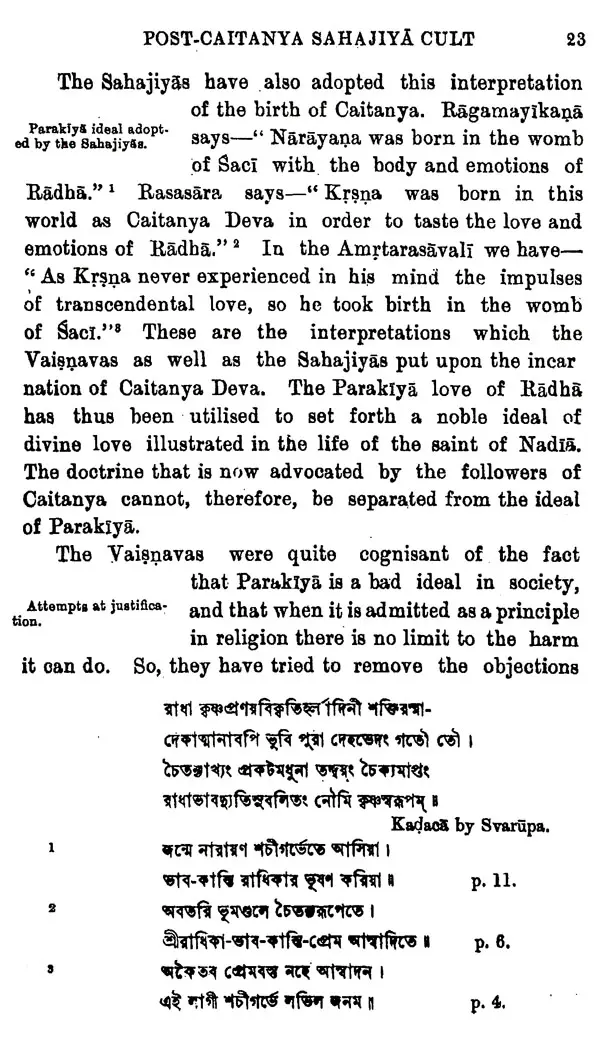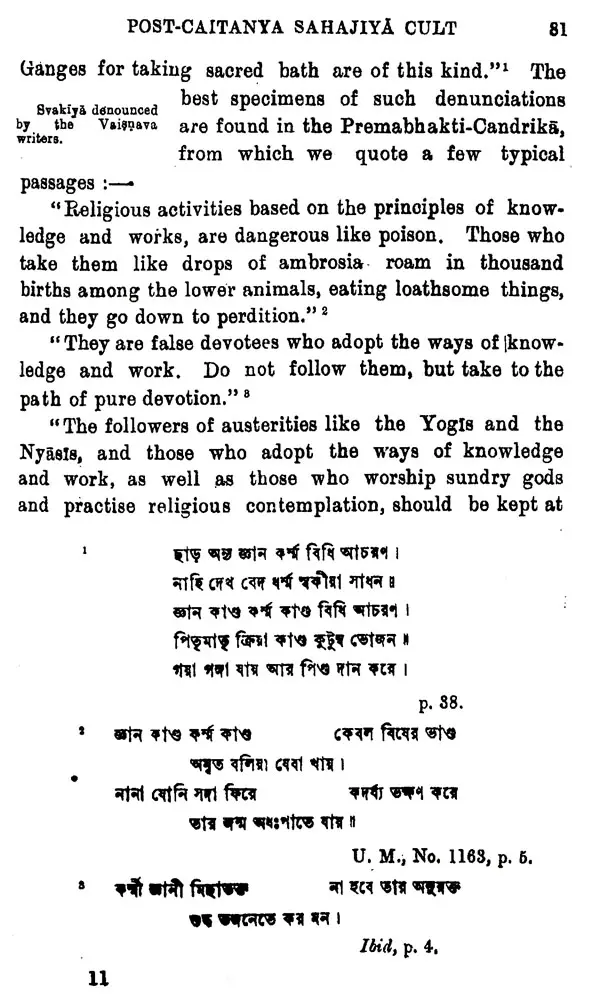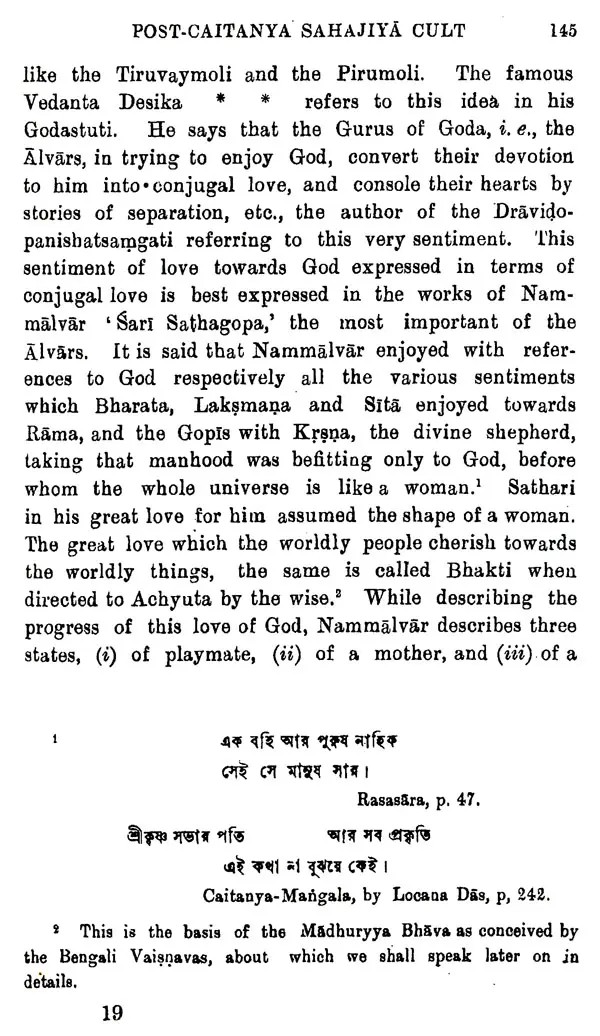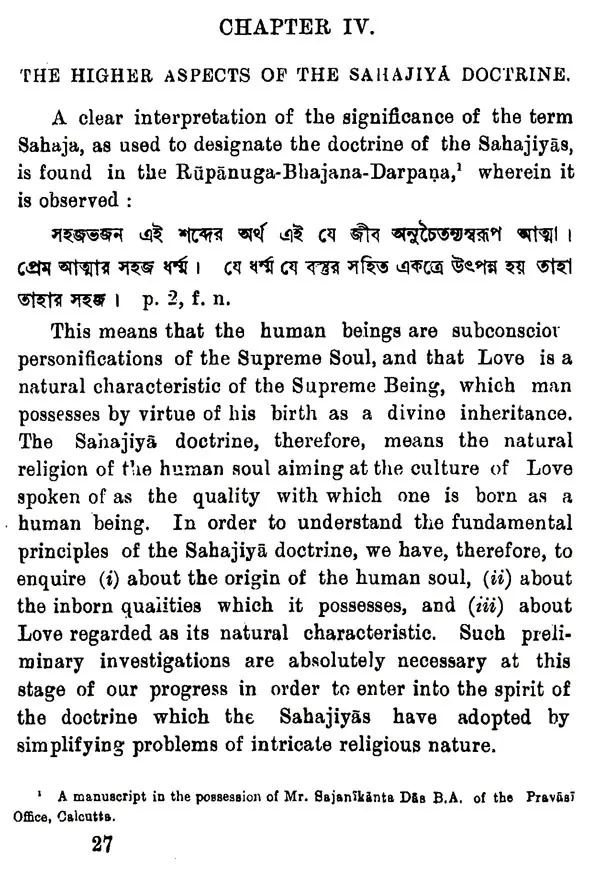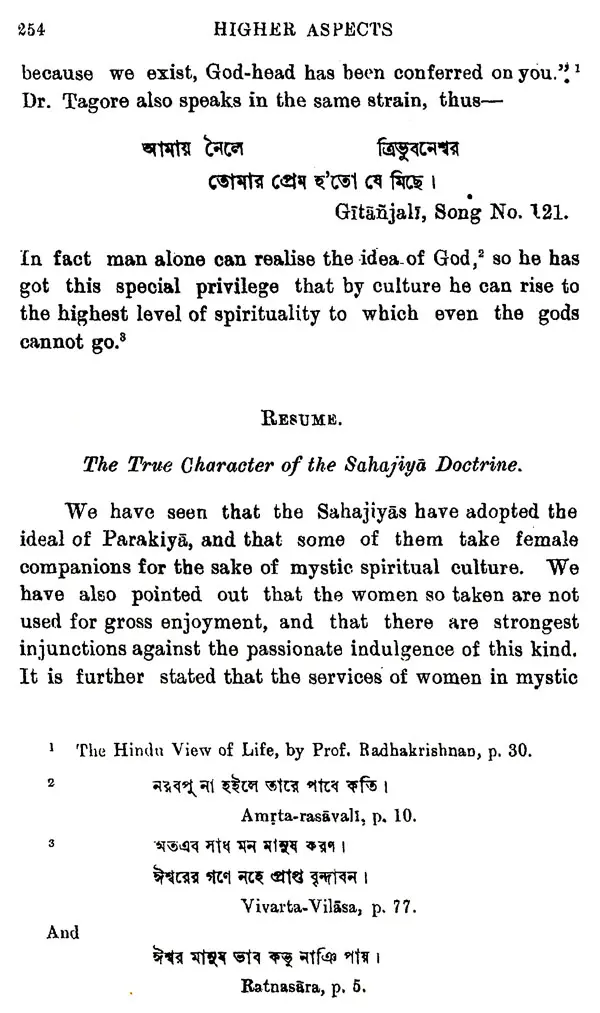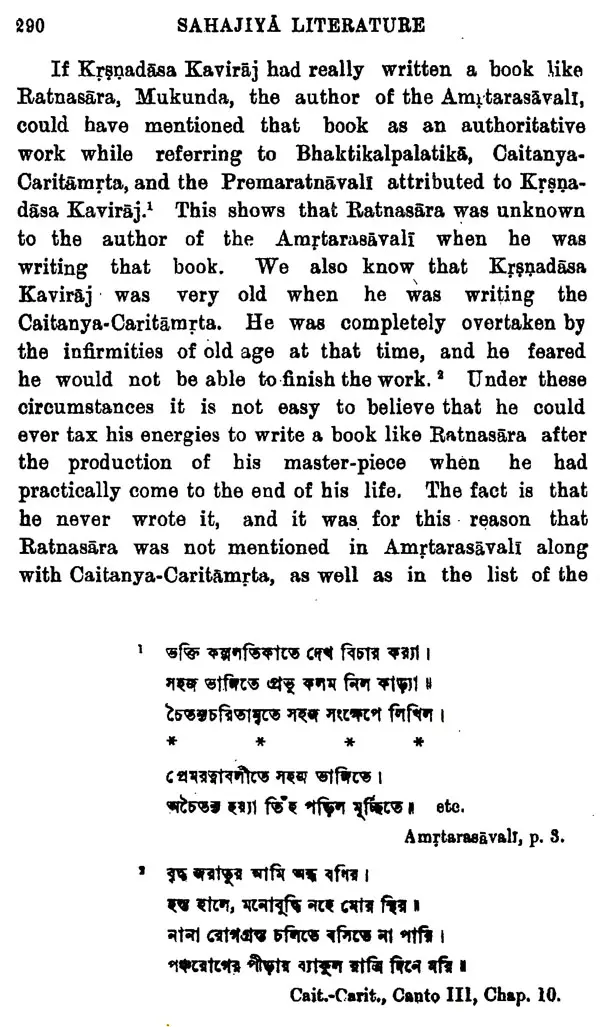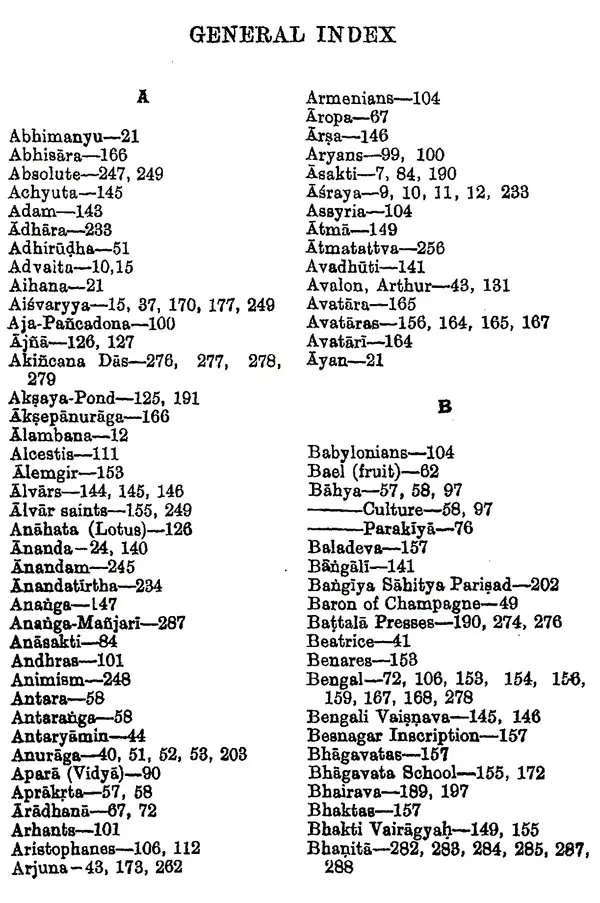INTRODUCTION Human society, as it is now constituted, can be - brought to a state of ideal perfection when there grows in every mind a conception that we all belong primarily to the human race, and that the doctrine we are destined to follow is principally what is the natural religion of man based on an ideal of universal brother hood. To hold others dear as our own self requires such an adjustment of individuality with relation to other objects of nature that all the heterogeneous elements may appear linked together within the compass of a homogeneous whole. This cannot be effected by philo. sophical and metaphysical speculations, or by intellectual beliefs in abstract truths, but through the personal realisation of love which is the cement of union. What we now require is a doctrine which should be entirely based on the ideal of love and devoted to the culture of this noble sentiment, so that we can perfectly realise that love is our divine heritage which has imprinted on maa the character of a true human being, and that properly cultivated it grows beyond limitations, embracing the whole world with all the ardour of a devoted lover. For the growth of our spiritual insight of this nature modern thinkers have set their hands to the formulation of doctrines like Positivism, and Humanism as perfect religions for the future. The illustration of what the Sabajiyas of Bengal, in their humble way, can contribute to the furtherance of the same ideal may be found in the present treatise. The term Sahaja is a Sanskrit word which etymologically means what one is born with, and thus it refers to the natural tendency which one possesses from birth, In the conception of Divine nature the quality to which the Sahajiyas have given prominence is the attribute of love, maintaining that love is a natural characteristic of the Supreme Being which is possessed by man by virtue of his origin from the Eternal Spirit. They do not rest satisfied by preaching the sermon that God is love, but insist on realising that man also is love. Love in the individual has thus become the first item in their calculation, and they have set up a doctrine aiming at the culture of this quality in man, going up from the concrete to the abstract ideas, from the individual to the Infinite, in their progressive ascent through the atmosphere of spirituality. This spirit of the doctrine has naturally placed it in a position perfectly favorable to the cultivation of the sentiment of universal brotherhood which the modern mind is insisting on for acceptance as a dogma in religion. The idea of God has come to us through our imagination, and we have invested Him with all the glorious attributes we can conceive of. We generally utilize this conception of God to minister to our needs, but the Sahajiya doctrine does not contemplate any such necessity. It has made man, and not God, the object of worship, holding fast to the view that the development of human qualities can imprint on man the character of the Supreme Being. It maintains that even salvation cannot come from any outside agency, but it has to be squired by man by his own perfection. Working on this ideal, the Sahajiyas have centred all attention on the culture of self, with the conviction that man in potentiality is even superior to gods. In their treatment of the doctrinal points also they have always evinced a tendency to combine philosophy and religion together, with a thorough insight into the reality of our existence. In the sphere of practical culture with Parakiya com panions as well as in the spiritistic conception of the never-ending play of Matter and Energy symbolised in Krena and Radha, they have proceeded on the same principle by making deductions from the rationalistic observations of nature. This is the true character of the Sahajiya doctrine which we have tried to illustrate in the pages of this book.
**Contents and Sample Pages**
